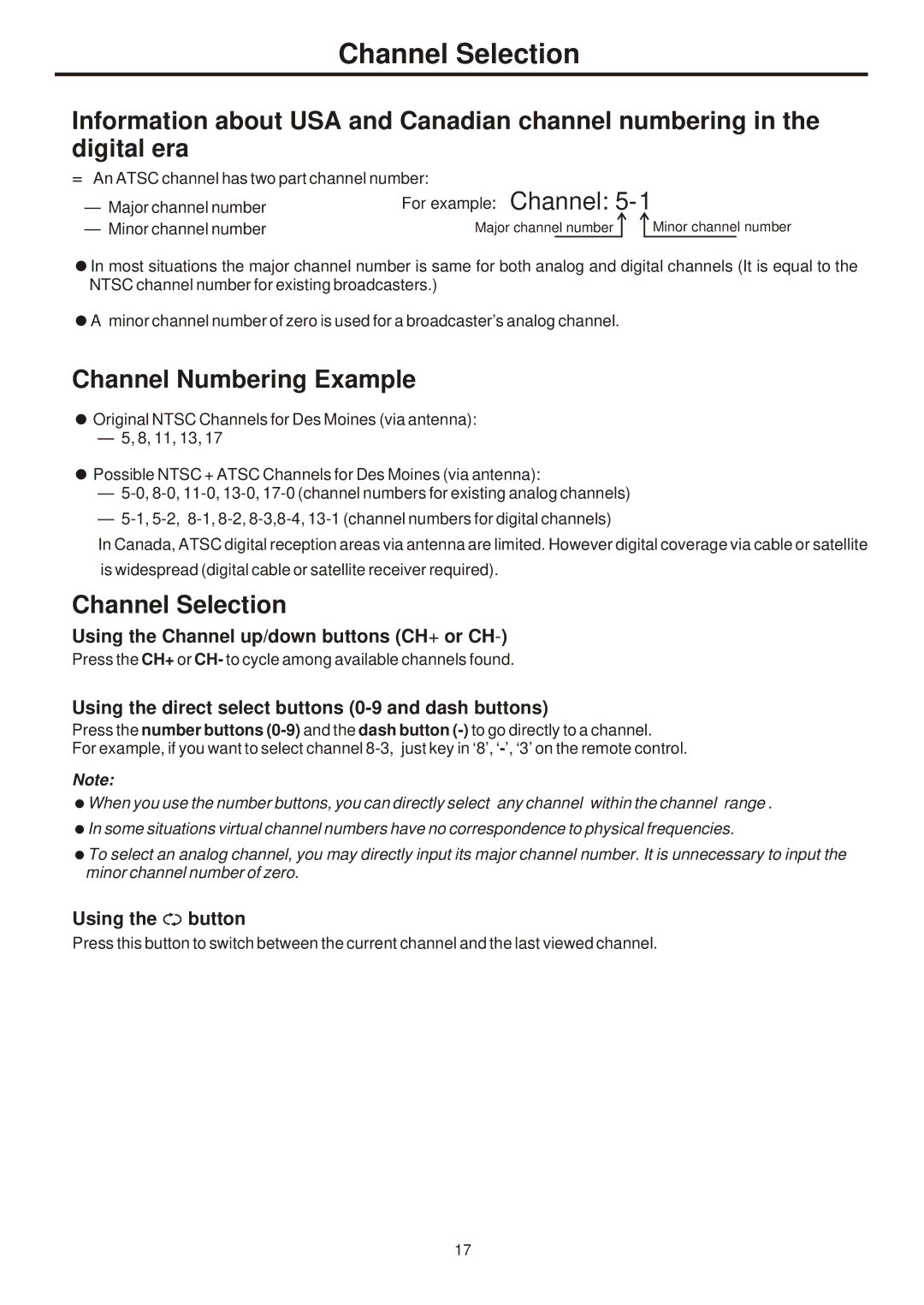
Channel Selection
Information about USA and Canadian channel numbering in the digital era
=An ATSC channel has two part channel number: | Channel: |
| |
— Major channel number | For example: | Minor channel number | |
— Minor channel number | Major channel number | ||
=In most situations the major channel number is same for both analog and digital channels (It is equal to the NTSC channel number for existing broadcasters.)
=A minor channel number of zero is used for a broadcaster’s analog channel.
Channel Numbering Example
=Original NTSC Channels for Des Moines (via antenna):
—5, 8, 11, 13, 17
=Possible NTSC + ATSC Channels for Des Moines (via antenna):
—
—
In Canada, ATSC digital reception areas via antenna are limited. However digital coverage via cable or satellite is widespread (digital cable or satellite receiver required).
Channel Selection
Using the Channel up/down buttons (CH+ or
Press the CH+ or CH- to cycle among available channels found.
Using the direct select buttons (0-9 and dash buttons)
Press the number buttons
For example, if you want to select channel
Note:
=When you use the number buttons, you can directly select any channel within the channel range . =In some situations virtual channel numbers have no correspondence to physical frequencies.
=To select an analog channel, you may directly input its major channel number. It is unnecessary to input the minor channel number of zero.
Using the ![]() button
button
Press this button to switch between the current channel and the last viewed channel.
17
